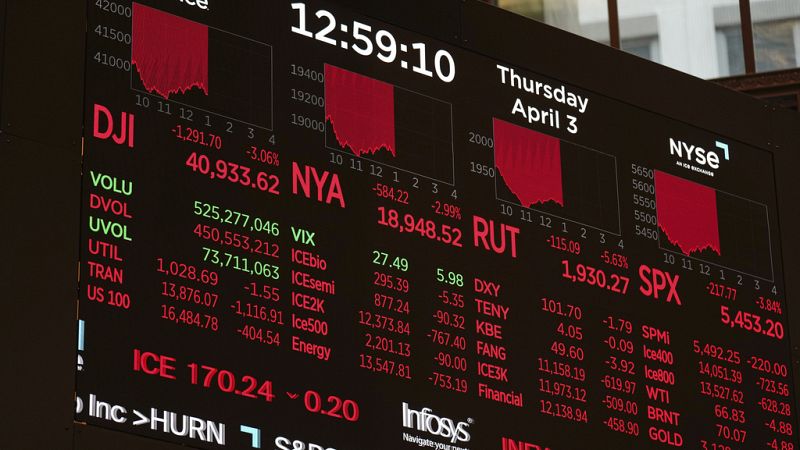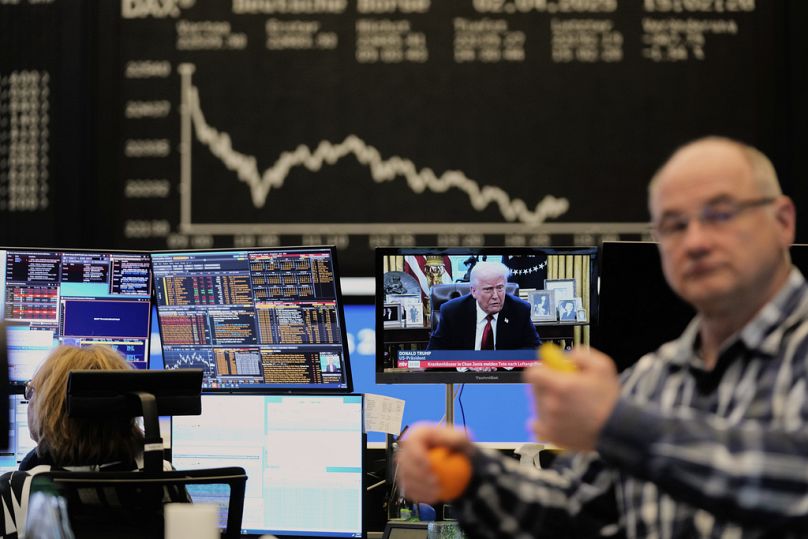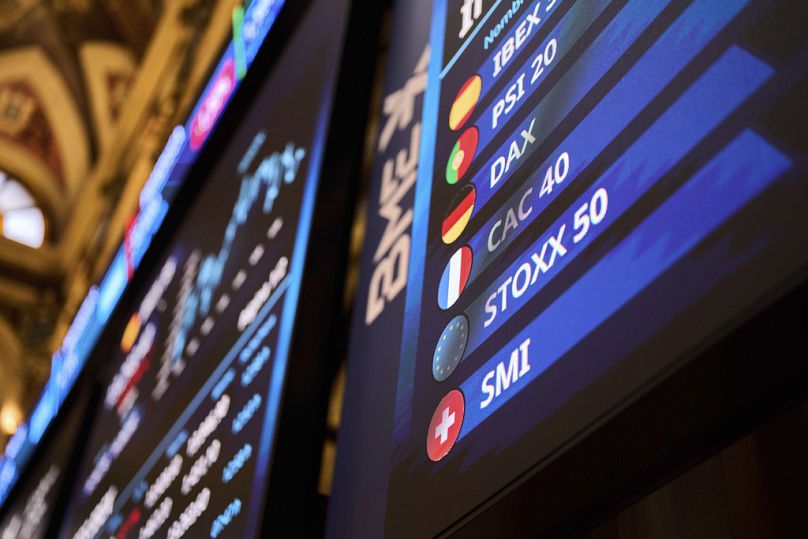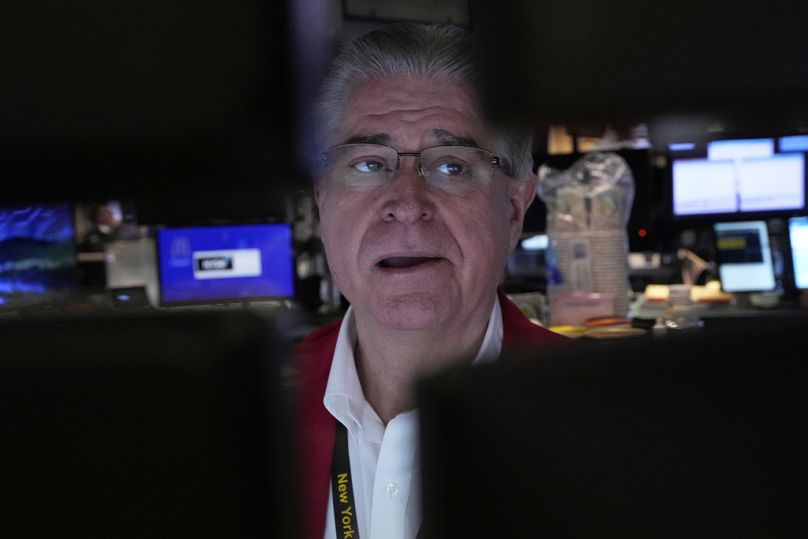European and US markets continue to drop after Trump's global tariffs

Stock markets worldwide are careening even lower Friday after China matched US President Donald Trump’s big raise in tariffs in an escalating trade war. China’s response to US tariffs caused an immediate acceleration of losses in markets worldwide.
The Commerce Ministry in Beijing said it would respond to the 34% tariffs imposed by the US on imports from China with its own 34% tariff on imports of all US products beginning April 10. The United States and China are the world’s two largest economies.
The intensified trade conflict between the US and China accelerated a slide in the German DAX index on Friday afternoon.
With a drop of more than 1,000 points, or a good 5%, to a daily low of 20,590 points, the leading German index extended its weekly decline to around 8%, according to reports of German news agency dpa.
Tim Oechsner, a capital markets expert at Steubing AG, said this was emblematic of the current "high volatility".
European stocks saw some of the day’s biggest losses, with indexes sinking roughly 5%. The price of crude oil tumbled to its lowest level since 2021.
The largest Spanish stock market, IBEX35 (IBerian-indEX) also saw a fall of roughly 5% on Friday. In the middle stretch of trading, the IBEX35 took a nosedive, bringing it down to 12,500 points, as it was also dealt a crucial blow by the US-China led tariff war.
The Spanish selective index was the one that managed to weather the impact of the tariffs, which were announced on Wednesday night, in the best possible way, registering a fall of 1.2%, relatively minor in comparison with European counterparts which averaged 3%.
France similarly took a hit, with its largest market, the CAC 40 dropping about 4.3%, in what were the biggest weekly losses for European shares in years.
Leading the charge for European response, French President Emmanuel Macron urged all French companies to pause planned investments in the US.
Acting German Economy Minister, Robert Habeck, echoed the same sentiment, adding that Trump would “buckle under pressure” if Europe united together in its response.
France’s Finance Minister Eric Lombard however cautioned against tit-for-tat countermeasures on Washington’s tariffs, warning that this would also rebound on European consumers.
The European Union’s trade commissioner Maros Sefcovic said he held a two-hour call with US Secretary of Commerce Howard Lutnick and US Trade Representative Jamieson Greer.
“I was clear: US tariffs are damaging, unjustified,” said Sefcovic in a post on social media platform, X. “The Eu’s committed to meaningful negotiations but also prepared to defend our interests.”
The weight of Trump’s aggressive tariff policy, only exacerbated by Beijing’s reciprocal response has also dealt a sizeable blow on US markets.
The S&P 500 fell 322.44 points, down to 5,074.08 – roughly 6% – closing the week at a record low since March 2020 when the coronavirus pandemic ripped through the global economy.
The Dow Jones Industrial Average plunged 2,231 points, or 5.5%, while the Nasdaq Composite tumbled 5.8% to pull more than 20% below its record set in December.
So far there have been few, if any, winners in financial markets from the trade war. Stocks for all but 14 of the 500 companies within the S&P 500 index fell Friday.
The price of crude oil tumbled to its lowest level since 2021. Other basic building blocks for economic growth, such as copper, also saw prices slide on worries the trade war will weaken the global economy.
Trump has given mixed signals on that. On Friday, he said Vietnam “wants to cut their Tariffs down to ZERO if they are able to make an agreement with the US.”
He also criticised China’s retaliation, saying on his Truth Social platform that “CHINA PLAYED IT WRONG, THEY PANICKED - THE ONE THING THEY CANNOT AFFORD TO DO!”
Trump says Americans may feel “some pain” because of tariffs, but added that the long-term goals, including getting more manufacturing jobs back to the United States, are worth it.
On Thursday, shortly after stock markets began tanking after his global tariff announcement, Trump likened the situation to a medical operation, where the US economy is the patient, hinting that things will get worse before they start to get better.




